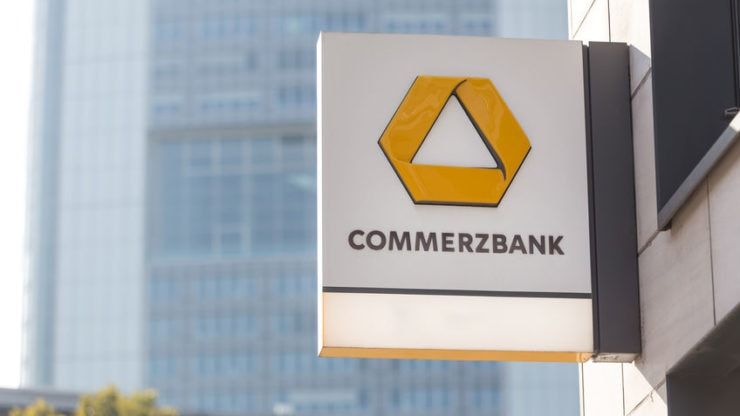Germany has made it clear that it will hold onto its remaining shares in Commerzbank for the foreseeable future, affirming that the bank’s strategy remains focused on maintaining its independence.
This was confirmed by Germany’s Finance Agency on Friday, indicating the government’s current stance against a takeover of the country’s second-largest bank.
This announcement follows closely on the heels of Italian lender UniCredit’s unexpected acquisition of a 9% stake in Commerzbank, making it the second-largest shareholder.
UniCredit’s CEO Andrea Orcel has openly expressed his interest in potential mergers, adding to the speculation surrounding Commerzbank’s future.
However, the surprise purchase by UniCredit, internally known as ‘Flash’ after Orcel’s dog, has raised alarms within Berlin.
The acquisition was met with resistance from both labor unions and Commerzbank itself, prompting the bank to outline a defensive strategy against any immediate changes.
Government urged to hold Commerzbank stake
Germany’s government, which still holds 12% of Commerzbank after recently selling 4.5% of its shares to UniCredit, has a crucial role in any future merger discussions.
Despite this, key stakeholders, including union leaders and Commerzbank management, have urged the government to refrain from further share sales.
During a Friday meeting, officials from the Finance Agency, which oversees government-held assets, concluded that no additional shares would be sold “until further notice.”
A spokesperson for Commerzbank reaffirmed the bank’s current approach to CNBC, stating:
Commerzbank is a stable and profitable institute. The bank’s strategy is geared towards independence. The Federal government will accompany this until further notice by maintaining its shareholding.
Orcel has expressed his intention to pursue merger talks, arguing that such a move could create a “stronger competitor” in Germany’s banking sector.
His statement comes at a time when European banks are grappling with the need to become more competitive, especially against larger US and Asian financial institutions.
However, several challenges stand in the way of such a merger. European cross-border banking deals have faced obstacles for years due to weak profitability, which has left many banks hesitant to engage in mergers.
Additionally, regulatory hurdles and political preferences for national banking champions have made such deals even more complicated.
Political hurdles delay UniCredit’s potential Commerzbank takeover
Although UniCredit has made significant strides in recent years—largely due to a strong financial recovery that distinguishes it from its competitors—political dynamics remain a significant barrier to cross-border mergers.
Anke Reingen, a banking analyst at RBC, informed CNBC that a UniCredit takeover bid for Commerzbank is not off the table but is unlikely to happen soon.
She said:
We do not think a deal is off the table, forever, but any move is likely to be later than we had initially expected.
The decision to maintain the government’s Commerzbank shares comes with a broader implication: it extends the current 90-day lockup period established when the share sale to UniCredit was completed.
According to insiders familiar with the situation, this ensures the government’s continued involvement in the bank for the foreseeable future.
The post Germany to retain Commerzbank shares as bank strives for independence appeared first on Invezz

